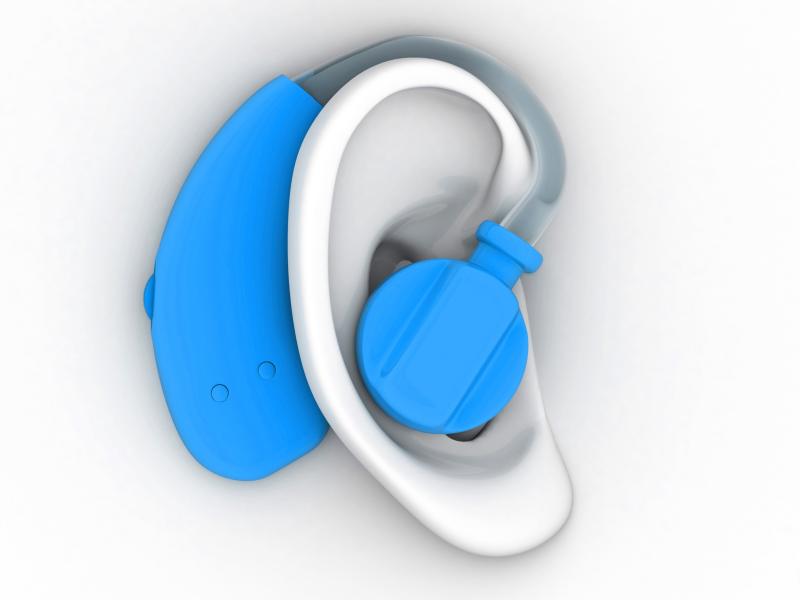
Using hearing aids to combat hearing loss may also help delay cognitive decline in older people, according to a recent study.
“Despite the small sample size to date, both the observed relative stability and clinically and statistically significant improvement in cognition seen in this initial participant group after 18 months of hearing aid use are exciting and encouraging,” said researchers.
“If these findings are confirmed with larger numbers in time, this could provide important information for clinical management of older adults of both sexes in the future,” they added.
Of the 98 enrolled elderly adults (mean age, 72.5±4.86 years; 53 females), 61.2 percent had no hearing disability at baseline, as identified by the Health Utilities Index-3 (HUI3) tool. Over a quarter had moderate hearing disability, while the impairment was mild in 7.1 percent and severe in 5.1 percent. [J Clin Med 2020;doi:10.3390/jcm9010254]
Cross-sectional and regression assessments found that at baseline, older participants had poorer executive function, as did those who had worse hearing loss. In absolute terms, each 10-dB impairment in hearing loss increased Groton Maze Learning Test (GML) scores by an average of 4.20 points, while 10 years of age corresponded to an 8.16-point jump in GML scores.
Eighteen months after device fitting, objective speech perception showed significant improvements. Mean consonant-vowel-consonant word scores, for instance, increased from 85.46 percent at baseline to 93.78 percent (p=0.000). Bilateral speech reception threshold likewise improved, but with only borderline significance (p=0.066).
These hearing improvements coincided with better cognition in 37 participants who were available for follow-up testing. GML scores dropped from 58.8 to 51.0 points (p=0.001), suggesting improved executive function. This effect was stronger for participants who used their assistive hearing devices more than 90 percent of the time. The difference relative to those with lower levels of use was statistically significant (p=0.028).
In the overall sample, 29.7 percent of participants showed cognitive improvements, while deterioration was detected in only 2.7 percent. Such results were significant since measurable improvements in executive function were not expected in older people, according to the researchers.
“For the greater number of older adults who are now living for longer, the results of this study suggest that it may be possible, through early identification and appropriate management of hearing loss, to enjoy living to a greater age, free of dementia,” the researchers said.
“Further data collection over time, with increased participant numbers, the addition of genetic screening data and comparative data for a healthy ageing ‘control’ group, will confirm whether the treatment of hearing loss with hearing aids can delay or even mitigate against the effects of cognitive decline,” they added.